News
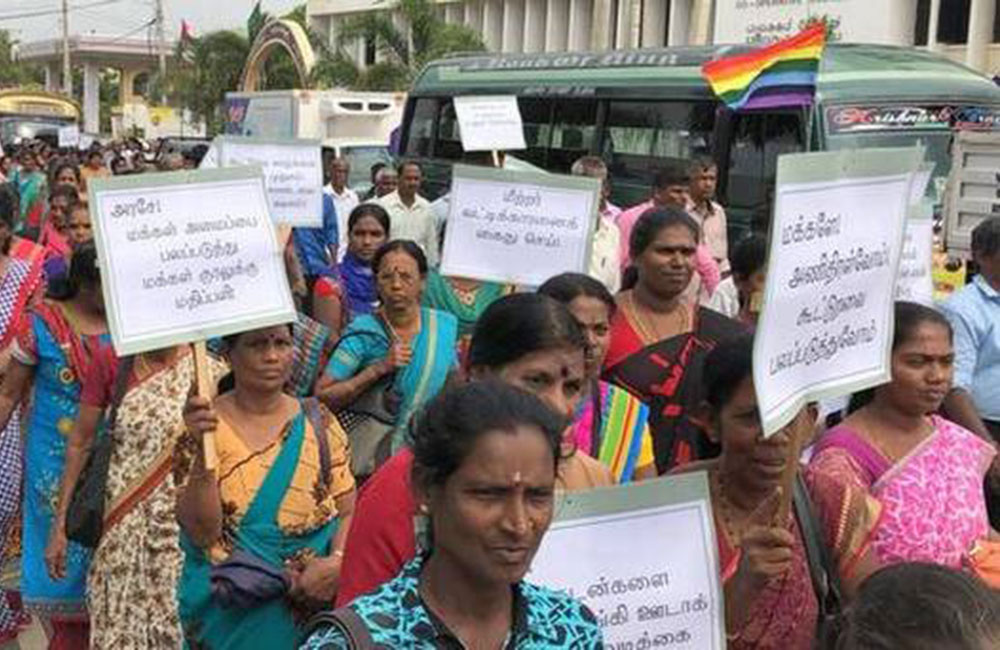
Thousands rally over mounting debt in northern Sri Lanka
Thousands rally over mounting debt in northern Sri Lanka
By Meera Srinivasan
Months after Sri Lanka’s Central Bank vowed action on mounting household debt in the war-affected north, thousands gathered in Jaffna on Tuesday, protesting against the government’s inaction.
‘Our home and country are indebted, what is the solution?; ‘Stop loans, give employment’ and ‘Strengthen people’s organisations’, read the banners held by participants, who marched from the iconic Veerasingham Hall — named after a former MP who pioneered the northern cooperative movement — to the office of the Government Agent (GA corresponds to the district collector in India).
Participants included members and employees of cooperative societies across the Northern Province and thousands of women, who are among the worst-affected by the high-interest, unregulated loans. After the civil war ended in 2009, a host of microfinance companies made credit easily available to those struggling to rebuild their lives.
Petition to agent
In its petition to the GA on Tuesday, the Jaffna District Co-operative Council sought a ban on unethical microfinance companies, an interest cap on “predatory loan schemes”, a two-year moratorium and the expansion of low-interest government credit schemes.
Speaking to The Hindu, Kanthiah Mahadevan, president of a Jaffna-based credit cooperative society and an organiser of Tuesday’s protest, said while many families in Jaffna receive financial support from a member earning abroad, it is the economically most vulnerable who are aggressively targeted by the companies. The interest rate is 28% on paper, but the actual interest paid adds up to 70%, he said. “The government must channel funds to the cooperative societies so we can lend at a reasonable rate of 10-12%.”
With no option of repaying the high-interest loans, many women take multiple loans to survive. “Collecting agents often harass them at their doorsteps, pushing many to the brink of suicide,” said Sarojini Pathmanabhan, secretary of the Northern Province Federation of Thrift and Credit Cooperative Societies.
Amid growing calls for government intervention to address the problem, Sri Lanka’s Central Bank said in October last year that it was considering measures, including a moratorium and an interest rate cap. Asked about the progress made, the apex bank’s Governor Indrajit Coomaraswamy said an awareness campaign was being undertaken. A six-month moratorium came into effect a couple of months ago, but more people needed to be made aware of the option, he said. “We have not ruled out a cap on interest rate, but we would prefer it if the banks are responsive to the situation and take decisions to self-regulate,” he told The Hindu.
The central government has made a budgetary allocation of LKR 500 million for debt relief in 2018. “The allocation is welcome, but if the government does not take immediate regulatory measures, the development of the northern economy will be at stake,” warned Jaffna-based economist Ahilan Kadirgamar.
(The Hindu)
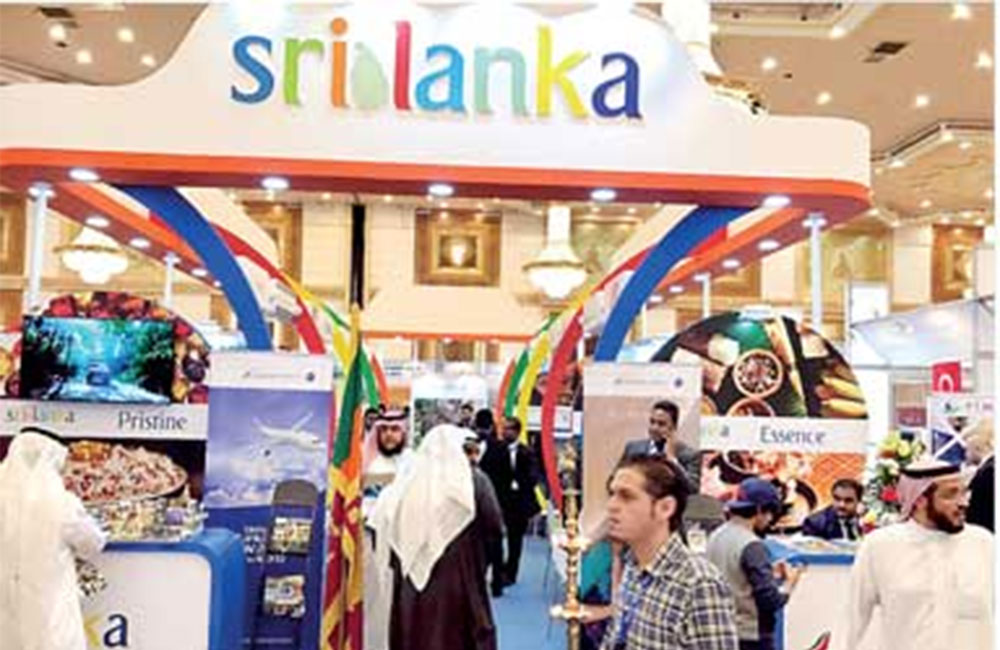
Sri Lanka eyes Jeddah tourist market
Sri Lanka Tourism has embarked on a promotional roadshow in Jeddah, Saudi Arabia, as part of an ongoing effort to boost the number of tourists visiting the island from the GCC.
A delegation of Sri Lanka Tourism officials as well as Sri Lanka’s leading hotels and tourism stakeholders gathered at the Radisson Blu hotel on February 26 to meet with Jeddah's leading travel and tourism companies.
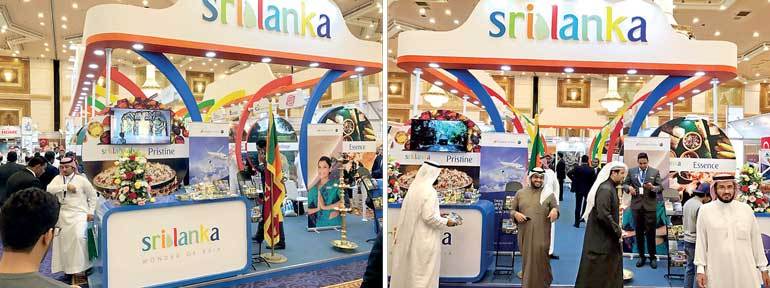
Sri Lanka Tourism showcased its colourful glamour once again at the Jeddah International Travel and Tourism Exhibition (JTTX) which was held from 15-17 February at the convention Centre – Jeddah Hilton, Saudi Arabia.
A total of 14 industry partners from Sri Lanka-based aviation, tourism and hospitality entities joined the roadshow to promote the country’s unique hospitality services and attractions including; Movenpick Hotel Colombo, Centauria Travels, Asian Adventures, Holiday Park, Walkers Tours, Exotic Global Holiday, Lanka Holidays.net and Figco Lanka Holidays, among others. As part of the promotional activities, Jeddah-based travel agents and tourism professionals were provided the latest information and updates on Sri Lanka’s touristic offerings through presentations, workshops and a series of business development meetings.
Madubhani Perera, director of marketing, Sri Lanka Tourism Promotion Bureau, said: "Sri Lanka is one of the preferred destinations for Gulf tourists as we offer a distinctive, adventure-packed, eco-friendly and family-focused experience and offering. With our rich nature, heritage and culture, year-round schedule of festivals and special events, numerous parks and eco centers and luxury resorts and wellness centres, Sri Lanka has many reasons for Saudi Arabian families to return to the island again and again.”
During 2017, Sri Lanka received a total of 35,481 tourists from Saudi Arabia. The island aims to double these numbers and achieve 20 per cet increase from Saudi Arabia by the end of 2018.
Saudi Arabia makes up the largest number of GCC tourists to Sri Lanka, followed by Oman and UAE as second and third largest number of GCC tourists to the island.
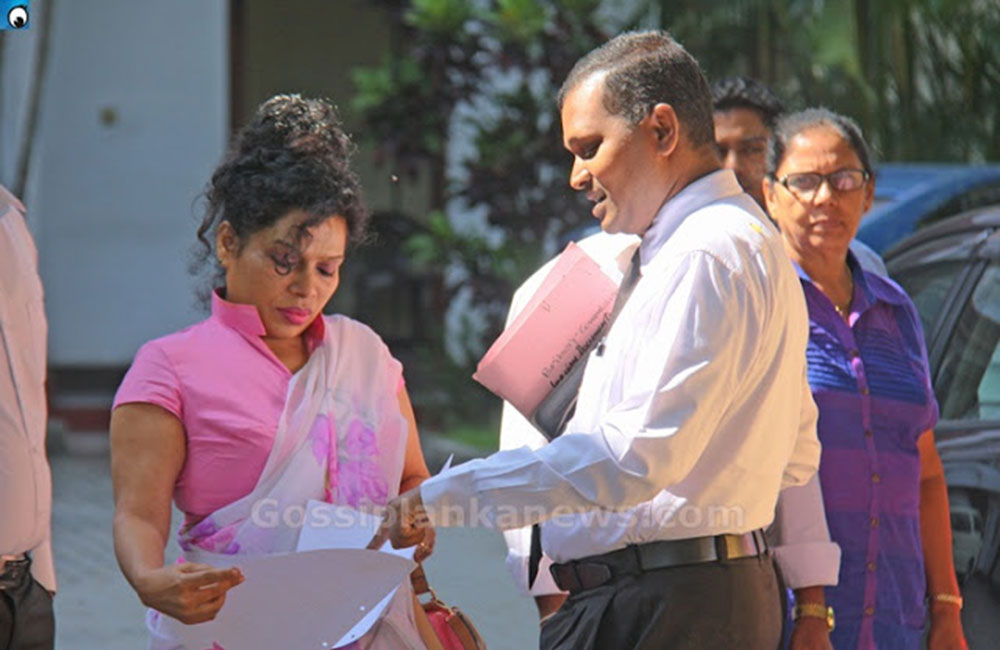
Shashi's Passport Case for further trial on Apr 23
When the trial of two cases filed against Shashi Weerawansa for holding diplomatic and general passports illegally, was taken up before the Colombo Chief Magistrate’s Court yesterday, the eleventh witness of the case, former Commissioner of the Department for Registration of Persons Jagath Wijeweera informed Court that he gave special instructions to approve Shashi Weerawansa’s application based on trust, regardless of necessary documents being not furnished.
He told the Court that former Minister Wimal Weerawansa had personally contacted him and said that Shashi Weerawansa had lost all her documents when they shifted to their new residence in Colombo 07 and she has to obtain a new ID immediately.
Wijeweera also said that he had issued a special written statement to the approval section of the Department, noting that Shashi Weerawansa had lost all her relevant documents and she would submit them later.
Accordingly, Colombo Chief Magistrate Lal Ranasinghe Bandara fixed the two cases for further trial on April 23.
Shashi Weerawansa was arrested in February, 2015 over the charge of obtaining diplomatic and general passport illegally. She had allegedly submitted birth certificates with forged names and dates of birth to obtain those passports. She is currently out on bail.
Source : Daily Mirror
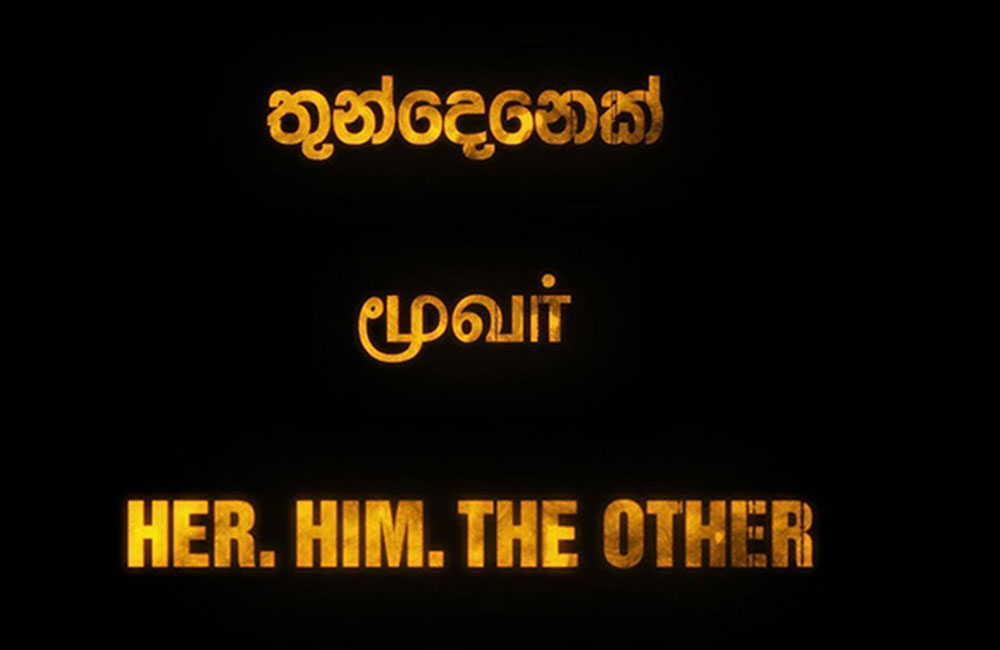
Launch of Reconciliation Policy and the film,'Her. Him. The Other' today
The much-anticipated launch of the ‘National Policy on Reconciliation and Co-existence’, along with the premiere of the film, ‘HER. HIM. THE OTHER’, a production undertaken by the Office for National Unity and Reconciliation, will be held today (27), at the Regal Cinema in Colombo at 5.30 pm.
President Maithripala Sirisena and Prime Minister Ranil Wickremesinghe will also be in attendance.
The National Policy on Reconciliation and Co-existence has been formulated by the Office for National Unity and Reconciliation, under the guidance of former President Chandrika Bandaranaike Kumaratunga.

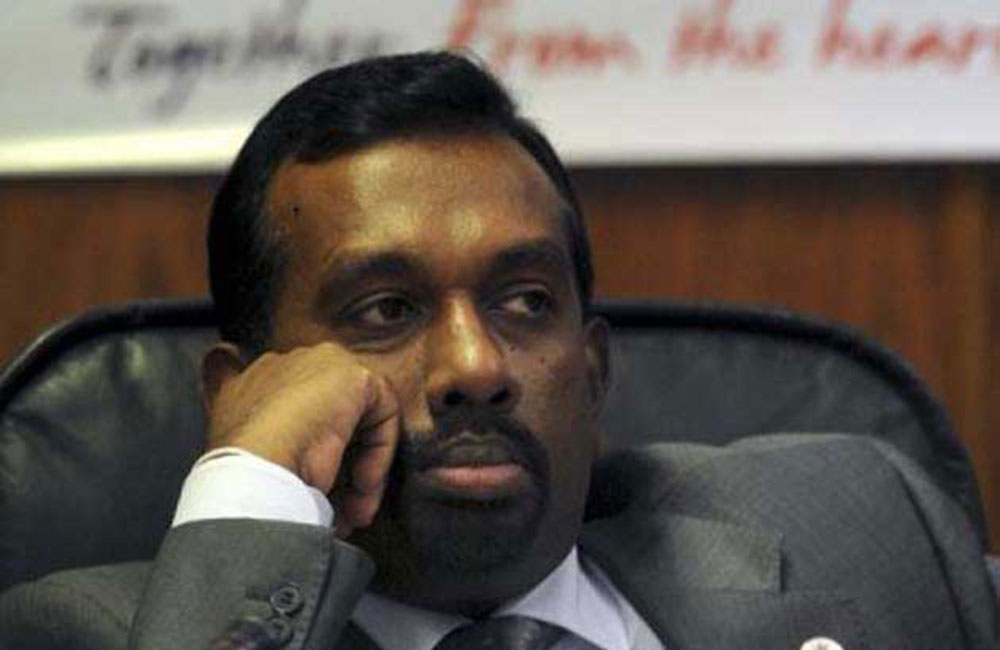
Aluthgamage's trial fixed for March 6
The case against former Sports Minister and MP Mahindananda Aluthgamage for the alleged criminal breach of trust of funds amounting to Rs. 3.9 million belonging to a trade union named Sri Lanka Nidahas Kamkaru Congress, was yesterday fixed for trial on March 6 by the Colombo High Court.
The case was to be taken up for trial yesterday, but President’s Counsel Nalin Ladduwahetty with counsel Hafeel Farisz appearing for Aluthgamage, moved court that the case be fixed for a new trial date since the defence was yet to receive a copy of a written complaint made by the third witness Wasantha Samarasinghe.
Counsel Hafeel Farisz appearing for Aluthgamage, moved court that the case be fixed for a new trial date since defence was yet to receive a copy of a written complaint made by the third witness Wasantha Samarasinghe.
However, Deputy Solicitor General Thusith Mudalige appearing for the Attorney General told court that defence was asking a document which had not been listed in the indictments. He said that there is no legal basis to consider this request and complained that the defence is attempting to postpone trial.
Accordingly, High Court Judge Sampath Wijeratne decided to commence trial proceedings from next date and the Attorney General was directed to submit documents at issue prior to the trial. The Attorney General alleged that former Sports Minister Aluthgamage has committed a criminal breach of trust with regard to Rs. 1,000,000, misappropriated Rs. 1,900,000, and misappropriated another Rs. 1,000,000 belonging to the Sri Lanka Nidahas Kamkaru Congress between October 2012 and April, 2013. The Attorney General charged that Aluthgamage had committed punishable offences under section 388 and 389 of the Penal Code, listed 13 persons as witnesses in the case and named eight documents as production items.
Source : Daily News
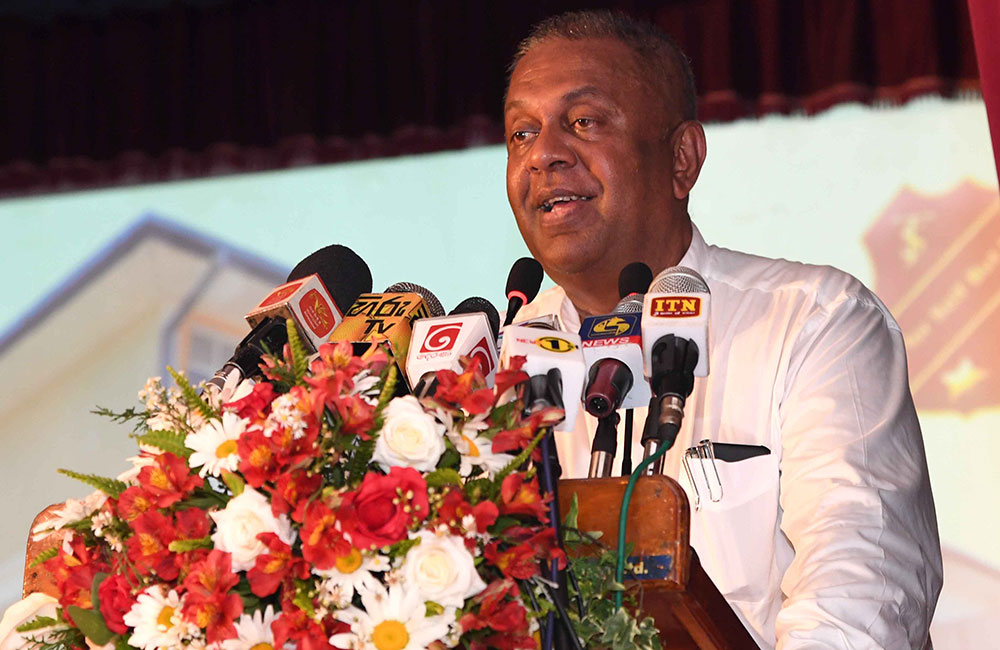
Governments aim is to create youth capable of taking on the modern world : Mangala
The Government's aim is to create a generation of youth capable of taking on the modern world while defeating tribal thinking says Minister of Finance and Media Mangala Samaraweera. The development of a country is ensured by the younger generation continuing to pursue education, he points out.
The minister said that the government is committed to ensuring this. Mangala Samaraweera made this statement at the opening of the school of St. Thomas 'Girls' High School in Matara and the foundation stone laying for a new four storied building.
Speaking further, the Minister said :
‘We've heard of agricultural, industrial, technological revolution. Today it is all about the digital revolution. Our aim is to create a suitable young generation for this. We have an era that talks about artificial intelligence” he said.
In the 2014 budget were allocated for education in the country at just under Rs. 196 billion. We have allocated Rs. 333 billion for education from the 2018 budget. The Minister said this shows the governments dedication to education.
The Minister also voiced his opinion on an incident that had taken place on the day. “When I arrived here today a student who I believe is a prefect handed me a sheaf of betel and worshipped me” he said adding that this should not be done. No one should bend before power, the Minister said. According to him, people should only worship their religious leaders, parents and teachers. “That is enough” he said adding that people have not got used to worshipping various politicians.
:Who knows what illegal things I do back at home so only worship those who should be worshipped” he said. “We must create a society that is able to work with a backbone” he said.
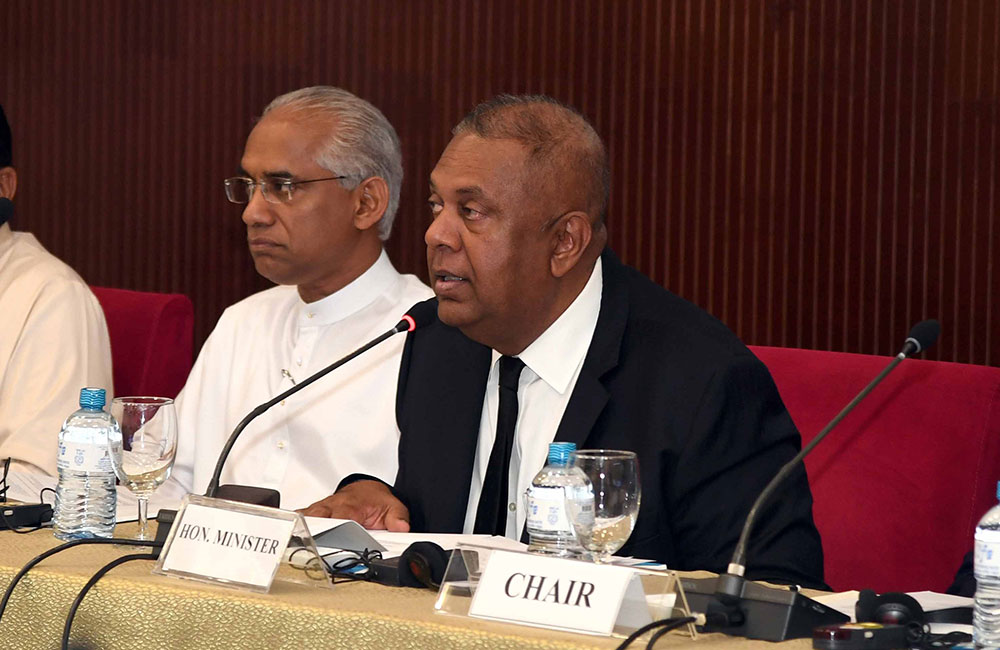
Concerted and coordinated policy response required to mitigate refinancing risks: Mangala
Sri Lanka, like many developing nations, faces refinancing risks in the coming years and should execute a concerted and coordinated policy response to mitigate such risks, Minister of Finance and Media Mangala Samaraweera said during his opening remarks at the two-day technical forum of the Intergovernmental Group of Twenty-Four (G-24), on International Monetary Affairs and Development, which commenced today, at the BMICH.
Because of a verity of impending developments in the global financial markets, the World Bank and IMF jointly formulated a new framework on Debt Sustainability for Low-Income Countries, as announced in October last year.”
Samaraweera added that this new framework will be implemented in the second half of 2018 and would help guide countries and donors in mobilizing financing for development needs.
“The new framework would help mitigate the risk of an excessive build-up of debt in the period ahead.”
The Minister also stated that according to the IMF’s Fiscal Monitor, within the group of low-income developing economies, over 90% of the countries had debt levels over 30% of the GDP as at end 2016.
However, the average government revenue within the same group of countries is 15% of the GDP, the primary deficit is around 3% of GDP on average, and exports are dominated by primary products.
These structural factors are not conducive to effective debt management and entails repayment risks even at modest levels of absolute debt, the Finance Minister added.
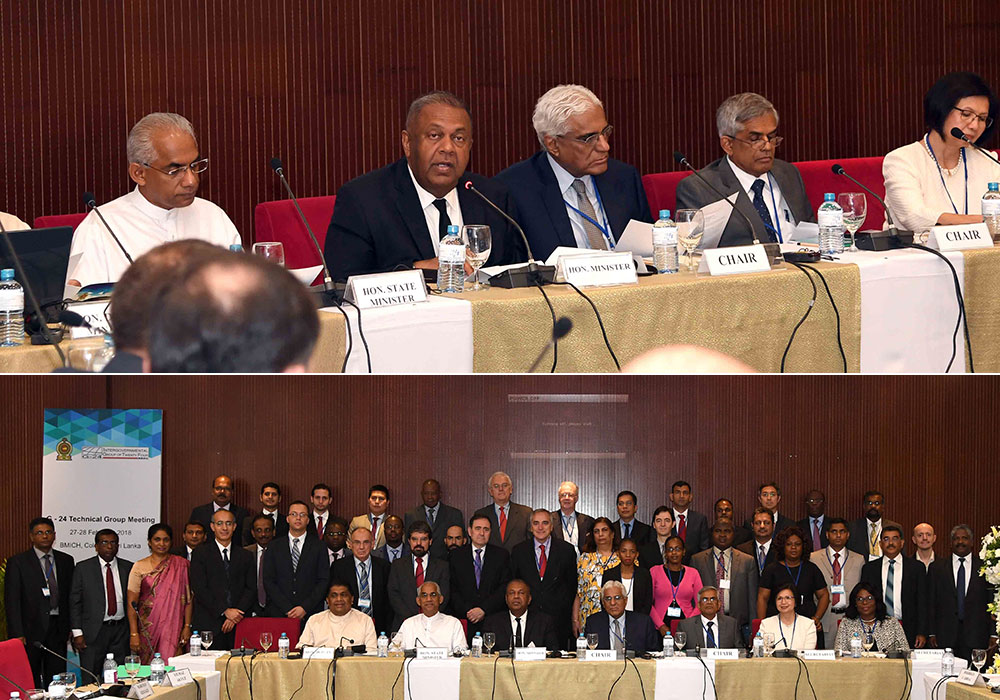
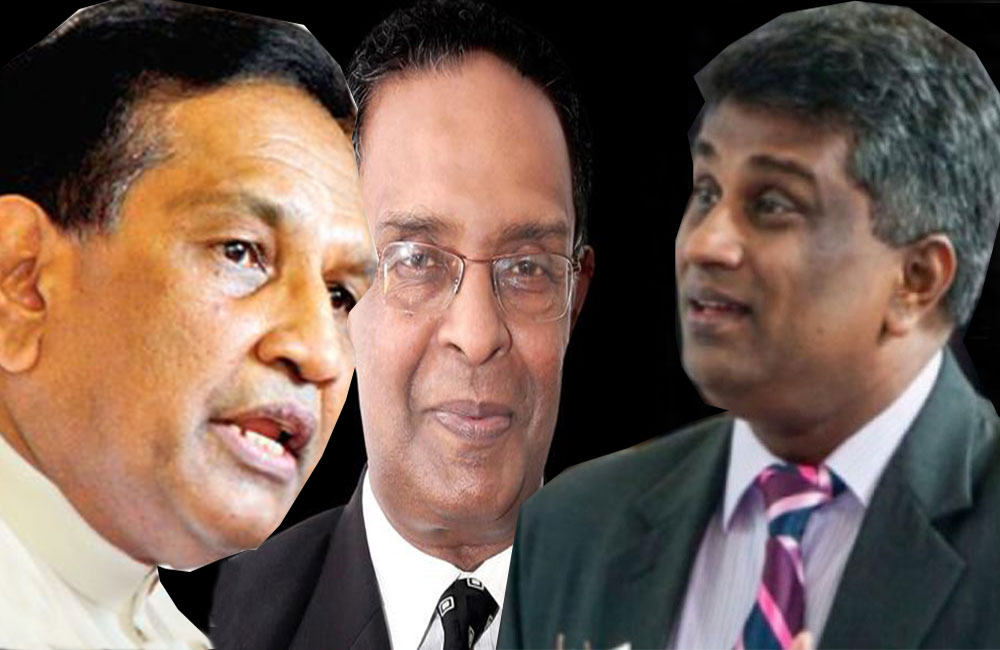
PM appoints committee to fast track measures against corruption
A committee comprising ministers Dr. Rajitha Senaratne, D.M. Swaminathan and Ajith P. Perera was appointed to expedite measures against corruption and fraud, the Prime Ministers Office said. The secretary to the Ministry of Law and Order will function as the secretary to the committee.
Meanwhile, Co-cabinet spokesman Dr. Rajitha Senaratne said that the prime minister only took over the Ministry of Law and Order for two weeks and that Minister Sarath Fonseka will be appointed to that position, despite the objection of some senior police officers.
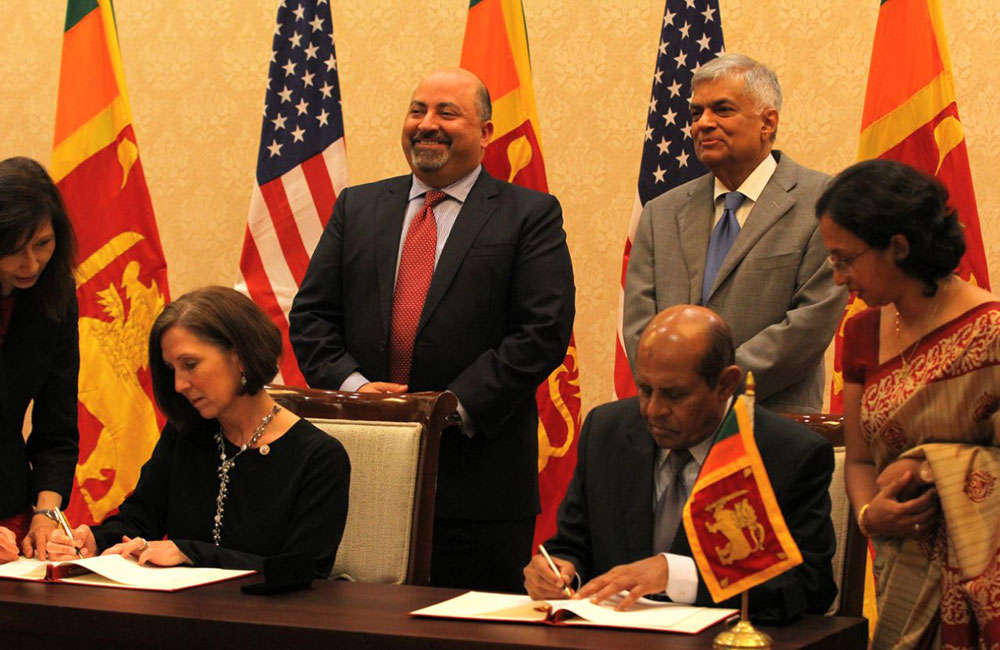
U.S. Peace Corps to re-establish program in Sri Lanka
The United States and Sri Lanka have signed an agreement to re-establish the Peace Corps program in Sri Lanka, the US embassy announced today.
With Prime Minister Ranil Wickremesinghe and US Ambassador Atul Keshap in attendance, Sheila Crowley, Acting Director of the U.S. Peace Corps, and Sri Lankan Foreign Minister Thilak Marapana, signed a new bilateral agreement to re-establish the program in Sri Lanka.
Peace Corps’ efforts in Sri Lanka will focus on English language education. Once in Sri Lanka, volunteers will undergo three months of comprehensive cultural, language and technical training before they are given their assignments to serve for two years. The first Peace Corps Volunteers are scheduled to arrive in Sri Lanka in September 2019.
“I am delighted that Peace Corps is returning to Sri Lanka. Our volunteers embody and promote the ideals of equality, shared prosperity, and a common interest in a peaceful, stable world,” said U.S. Ambassador to Sri Lanka and Maldives Atul Keshap. When signing the Executive Order that created the Peace Corps, President John F. Kennedy said, “Our Peace Corps is not designed as an instrument of diplomacy or propaganda or ideological conflict. It is designed to permit our people to exercise more fully their responsibilities in the great common cause of world development.”
From 1962 to 1998, more than 370 Peace Corps volunteers served in Sri Lanka, working in education, health and youth development. The program was closed in 1998 due to political instability. Peace Corps’ Crisis Corps, now Peace Corps Response, returned to Sri Lanka to support relief efforts in the aftermath of the 2004 Indian Ocean tsunami. In 2016, the Government of Sri Lanka invited Peace Corps to return to work and assist in furthering the country’s development goals.
“The return of Peace Corps to Sri Lanka is an opportunity to deepen the enduring friendship that has grown between our two countries over the past 70 years,” said Acting Peace Corps Director Sheila Crowley. “We are grateful to the Government and people of Sri Lanka for their invitation to, once again, have Peace Corps volunteers serve side-by-side with Sri Lankans in their beautiful country.”

Traces of alcohol found in Sridevi’s body, died of accidental drowning
Dubai Police said today that the initial investigation shows that Bollywood actress Sridevi drowned in the bathtub of her hotel room.
They found traces of alcohol in her body and this may have led to the accident.
“The investigation is still going on to determine the circumstances surrounding the accident as the forensic report only says that she drowned,” an official told Gulf News.
The police are trying to piece together the sequence of events and find out who was with her when the incident happened.
(Gulf News)
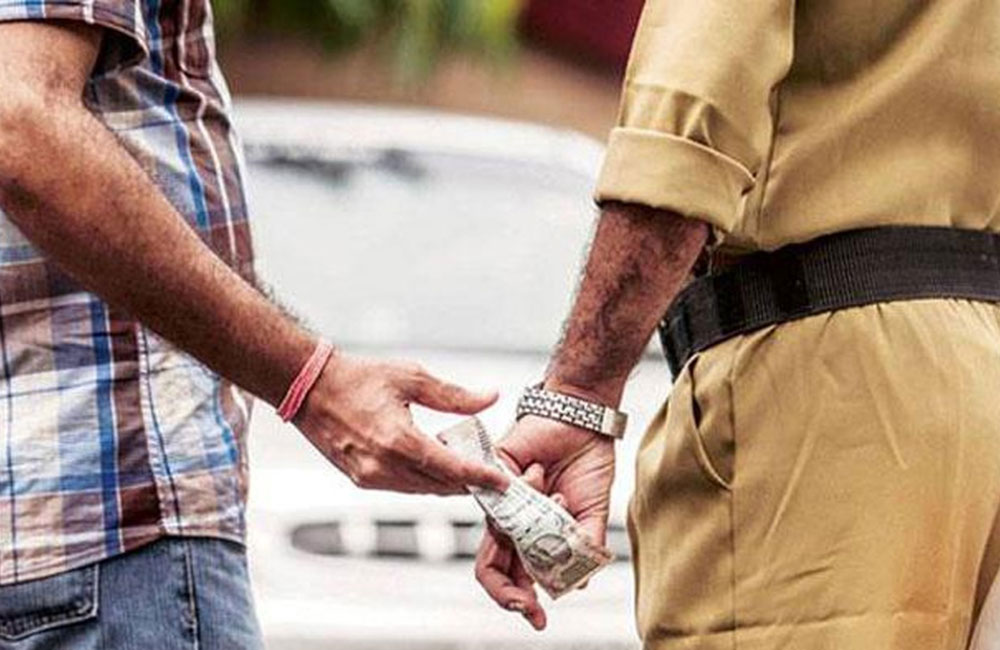
Wennapuwa ASP arrested on bribery charges
The Assistant Superintendent of Police (ASP) in Wennappuwa has been arrested by officers of the Bribery Commission today while allegedly soliciting a bribe of LKR 30,000.
The ASP had demanded a bribe from the owner of an Ayurveda massage parlour and was arrested during the transaction.

One missing after vehicle plunges into Vienna Canal
An individual is reportedly missing after a vehicle plying from Bandarawela to Mahiyanganaya plunged off the road and into the Vienna canal in Mahiyangana, this morning.
Four individuals including the driver and a woman have escaped the tragedy. The woman who escaped was admitted to the Mahiyangana Hospital due to minor injuries.
Mahiyangana Police is conducting a search for the missing individual. The area is known to be accident prone Police said.
Page 487 of 530